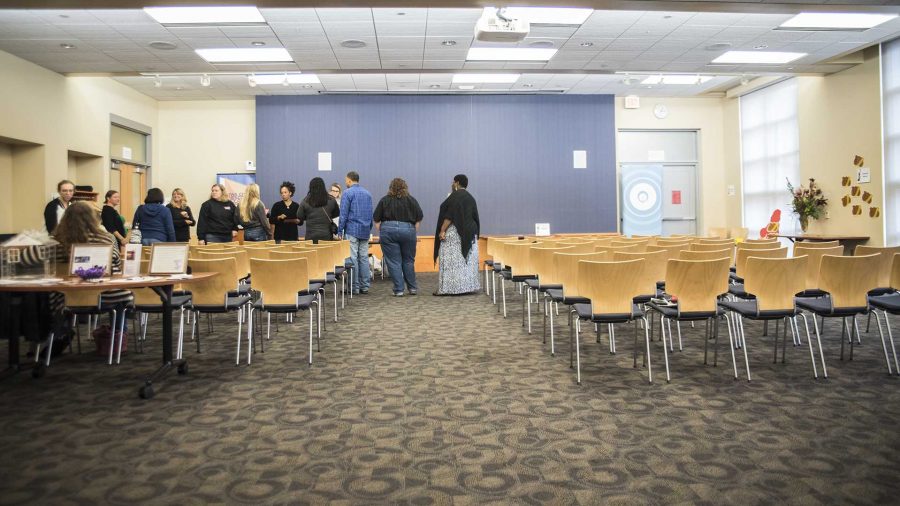A panel discussion hosted by the Witching Hour and Little Village on Oct. 21 at the Iowa City Public Library explored the thoughts and experiences of women of color.
The panel, “Invisible and Ignored,” centered on the ways in which women of color are silenced or unseen in predominantly white environments.
The moderator of the event was LaTasha DeLoach, the community-projects specialist at Johnson County Social Services. She said the panel focuses on the power of centering the voices and experiences of women of color through art, expression, and leadership.
“This panel is dedicated to women of color all over the world, particularly black women, as we have been sent these subtle and not so subtle messages that we should lessen the brilliance of our intelligence, that our sexuality is deviant, that we do not deserve to be supported or protected, or that we should be seen and not heard,” DeLoach said.
Three panelists presented their ideas, art, and stories. Panelist Lisa Covington, an activist and Ph.D. student in sociology, focuses her research on the experiences of black girls in education.
Covington noted the barriers black students face in the classroom and said that in Iowa City, around 62 percent of all suspensions are of black children even though only about 17 percent of the school population is black.
“One of the things that I’ve noticed here in Iowa, and in particular in the Midwest in general, is that black girls continue to be silenced and continue to experience that throughout their education,” Covington said. “Black girls don’t always have the luxury of being visible in the classroom.”
Another panelist, Sofia Mehaffey, who works for Horizons as the director of health and nutrition, recounted her life journey as a black woman in Iowa and her experiences in many predominantly white spaces.
She discouraged the audience from underestimating their own capabilities.
“There will be plenty of people who will do that for you,” she said. “Don’t downplay your accomplishments or your efforts. You will never hit a target you don’t aim for.”
Mehaffey described being black in leadership as “hearing your ideas regurgitated, and repackaged, and resold for a higher price by someone with less education and less experience.”
“It is a dream deferred, and deferred, and deferred until someone finally gives you a chance to prove your worth,” Mehaffey said. “It is drowning yourself in your work to show that you deserved that opportunity.”
Deborah Whaley, an artist and UI professor, displayed her artwork while reading corresponding original poetry and explaining the underlying inspirations. Some of the inspiration behind her pieces were the issues that women of color face and how they are silenced.
The panel closed with a Q&A session with all three women. RaQuishia Harrington, the program supervisor for special and underserved populations for Iowa City, helped generate the questions.
Harrington said the topics of the panel often go unaddressed, or other people speak on the behalf of women of color about how they think or feel.
“Make our lives and even our deaths visible,” DeLoach said. “Say our names. See and hear our experiences, our leadership.”



